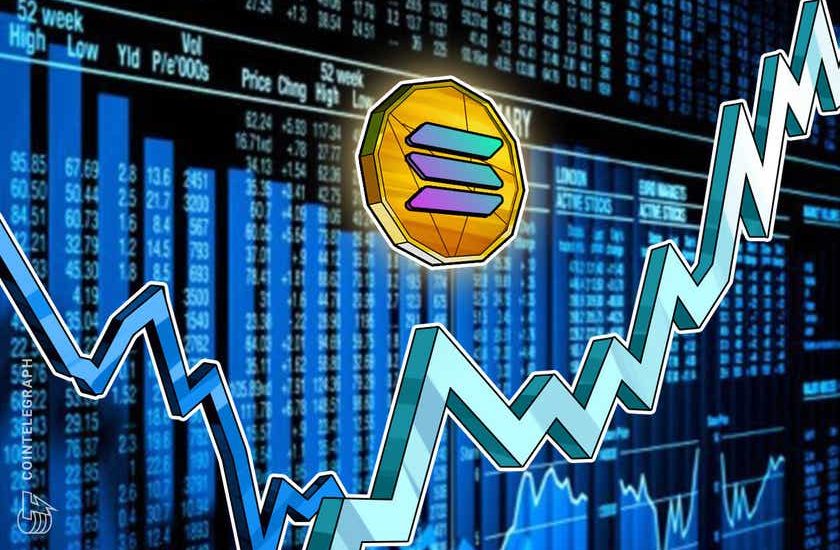- December 17, 2021
- Posted by: admin
- Category: BitCoin, Blockchain, Cryptocurrency, Investments


Steady ecosystem growth, institutional investment and a healthy derivatives market are strong signals that SOL will continue to be a top contender in 2022.
Solana (SOL) has become a top contender in the smart contract industry and in the past year the network’s total value locked (TVL) grew by $660 million and stretches across more than 40 decentralized applications to hit an all-time high above $11 billion.
Even with this growth, investors have reason to question whether the current $56 billion market capitalization is justified and how it compares to competing networks like binance smart chain (BNB), Avalanche (AVAX) and Polygon (MATIC).

By analyzing the past 6-month price performance, there’s an apparent decoupling from Terra (LUNA), Solana and Avalanche when compared to other smart contract platform competitors.
There is strong institutional appetite for Solana’s ecosystem
Solana’s market capitalization is more than double Avalanche and Terra which have $26 billion market caps. Searching Solana’s latest news on Cointelegraph yields an exciting array of institutional investments, ranging from the $314 million private token sale by Solana Labs in June, to an $18 million fundraise in September by Solana’s DEX project Orca.
There’s solid evidence of a growing ecosystem judging by investor appetite. However, to understand how successful Solana’s scalability solution is, we have to evaluate its usage metrics.
Looking at the number of active addresses on Solana’s dApps is a good place to start.

Ethereum’s leading dApp by active addresses is Uniswap, which has 188,200. Therefore, Raydium’s 97,600 weekly users is rather impressive considering it was launched just 10 months ago. Meanwhile, back in Feb. 2021, Uniswap already held over $4.3 billion TVL.
As for Solana’s NFT marketplace Magic Eden, its 58,400 weekly active addresses also account for more than half of Ethereum’s OpenSea, the sector’s absolute market leader in volume and users activity.
Avalanche user activity is highly concentrated on the Trader Joe decentralized finance app, but its $715 million weekly volume pales in comparison to Uniswap’s $22.1 billion or Raydium’s $12.5 billion. The same can be said by Polygon which has $573 million in trading activity at its QuickSwap DEX.
Solana has the third largest futures market
Solana currently holds the third largest futures open interest, which is the most relevant metric in derivatives contracts. This indicator aggregates the total number of contracts held by market participants regardless of the recent trading activity.

Despite the sharp drop since the Nov. 8 peak at $1.9 billion, the current $860 million futures open interest ranks Solana the third derivatives market by size. For example, Binance Coin (BNB) futures holds $520 million, followed by Terra (LUNA) with $430 million.
Solana leads in TVL, users and derivatives markets
Undoubtedly, there’s an impressive amount of activity coming from Solana’s on-chain data and derivatives markets. The network’s TVL increased by 15x over the past 6 months and Solana’s dApps users is nearly half the amount of users on the Ethereum network.
Solana seems to be quickly closing the gap in three important metrics: TVL, active users, and derivatives markets. Competitors like Terra, Avalanche and Polygon seem a long way behind, which possibly justifies the market capitalization premium.
The views and opinions expressed here are solely those of the author and do not necessarily reflect the views of Cointelegraph. Every investment and trading move involves risk. You should conduct your own research when making a decision.
